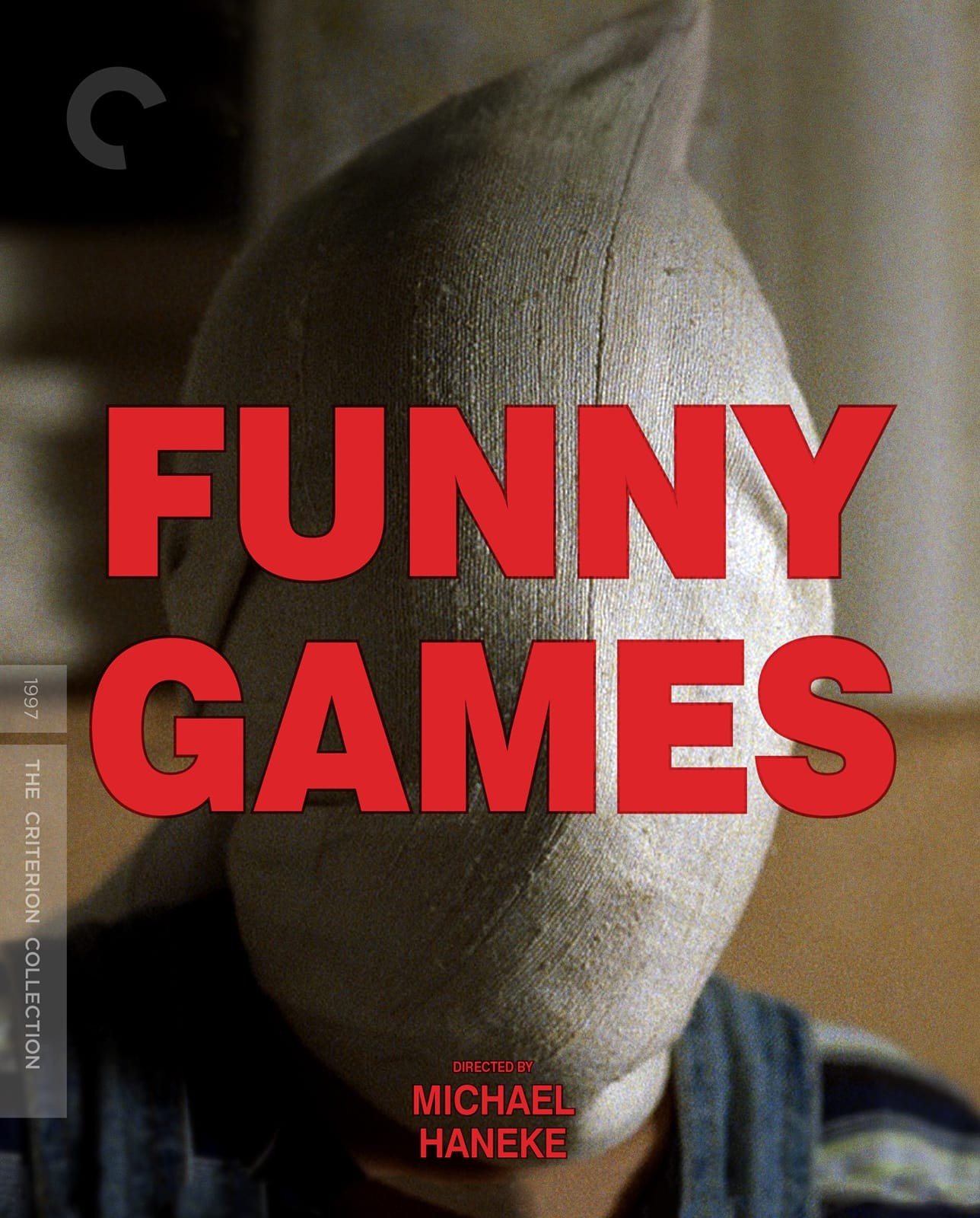by Chris Feil
 Joining the Criterion Collection this week is Michael Haneke’s notorious Funny Games, a confrontational allegory about western obsession and consumption of violence as entertainment. Here a family is psychologically tortured by two young male invaders, with the fourth wall broken and the audience taunted for their refusal to stop watching. The film plays with the gentle and the profane within our society, the contrasts between them drawing out what is toxically mundane about both. Haneke introduces his metaphor in the film’s angelic opening scene, and music is his shocking first tool.
Joining the Criterion Collection this week is Michael Haneke’s notorious Funny Games, a confrontational allegory about western obsession and consumption of violence as entertainment. Here a family is psychologically tortured by two young male invaders, with the fourth wall broken and the audience taunted for their refusal to stop watching. The film plays with the gentle and the profane within our society, the contrasts between them drawing out what is toxically mundane about both. Haneke introduces his metaphor in the film’s angelic opening scene, and music is his shocking first tool.
As Haneke’s parents and son enjoy their drive to their holiday home with classical music, “Bonehead” by Naked City interrupts with brutal force. The family doesn’t notice and carries on idyllically, creating a divide between what we are seeing and hearing. It’s a violent invasion to match what is to come, off-putting enough to serve as the auteur’s first dare to the audience to quit the film. The orchestral sound is what we think we consume, and the metal is what we consume in reality.
Some might consider it a juvenile tactic on Haneke’s part (it certainly seems less performatively showy now than it might have in 1997, at least), but the dissonance created between image and sound here is also the film’s first example of its thesis. Here Haneke illuminates the difference between what we think our relationship to depictions of violence are and the implications of what they actually are. Its screeching is more than stylistically accosting, it also challenges our relationship to film’s like what we’re about to watch. Call it death Meta-l.
Funny Games feels inextricable from the era of Columbine, a massacre that would come less than two years after the film’s Cannes premiere. The cultural fallout from that high school massacre brought scrutiny to not only this kind of music, but also to violent movies and video games. It feels like Haneke was predicting this conversation, refusing to let us off the hook whereas those who blamed heavy metal and hard rock were looking to blame anyone else but themselves. In using this music, he wasn’t satirizing the enactors of violence but those who allow it to happen because they are conditioned to it.
The film targets our desensitization and avoidance of real violence across various types of consumed media, whether its the nightly news or horror films or anything that reinforces that traditions of the nuclear unit. This musical flourish, obvious as it may read two decades later, equates the chaotic sound of death metal with untenable invasive violence that occurs everyday with increasing closeness. But the family’s undeterred smiles represent us at home as a satisfied audience to destruction, as if not hearing the difference between the structure of Handel and rattle of metal. Their classical music guessing game is presented as offhandedly as the ones their captors will soon play.
The rest of the film is painfully silent and without music, but this cue leaves a lasting impression until another vicious song from Naked City initiates the closing credits. Instead this time the film freezes, leaving us to marinate in the violence we’ve witnessed and the suggested violence to come. In the screams of the music and the frozen image, we see the harsher truth of the kinds of violence we allow ourselves to casually crave without realizing it.
All Soundtracking installments can be found here!